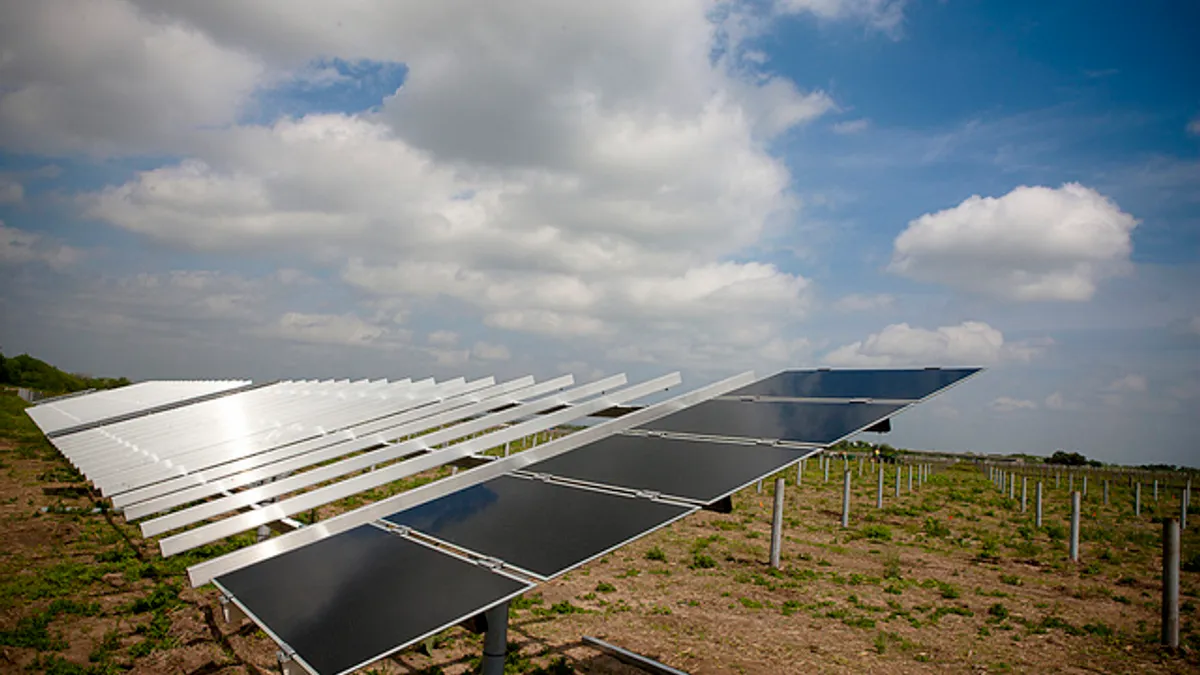Dive Brief:
- Duke Energy Carolinas will build its first utility owned and operated solar installations, the 60 MW Monroe project and the 14.4 MW Mocksville project. Four solar installations owned and operated by Duke Energy Progress, its sister utility, are also scheduled to be online in the next few months.
- Duke Carolinas will purchase the solar development rights from Birdseye Renewable Energy. Strata Solar build the Monroe project at an estimated cost of $100-$120 million. Crowder Construction will build the Mocksville project at an estimated cost of $27-$30 million.
- The purchase of the development rights for the solar projects was driven by Duke’s need keep up with the requirements of North Carolina’s 12.5% by 2021 Renewable Energy and Energy Efficiency Portfolio Standard (REPS), according to Duke Spokesperson Randy Wheeless.
Dive Insight:
While Duke Progress is planning four major solar projects it will own and operate as a part of a $500 million investment, Duke Carolinas has plans to own and operate only one more facility at present — a 6 MW facility slated for land it already owns near a substation.
Duke, the nation's largest utility, helped design the 2007 legislation that created the REPS but remained neutral when opponents recently attempted to freeze it at 6%. Although the company has no objection to the mandate, it supported the freeze legislation’s call for a stakeholder process to plan future North Carolina renewables, according to Wheeless.
Renewable advocates say recent utility-scale solar and wind buy-ins by Duke demonstrate proponents of the REPS freeze were wrong in claiming the policy adds significant cost to utility customers’ bills. In particular, they point to a report on the mandate from the North Carolina Sustainable Energy Association (NCSEA).
“According to [North Carolina Utilities Commission] rate information, the average monthly residential bill is estimated by the Commission to be $107.04 and $106.67 for [Duke Carolinas] and [Duke Progress] customers, respectively,” NCSEA’s study reports. “Within this total, monthly REPS charges are nominal: $0.39 and $0.83 per month, respectively.”
The Renewable Energy and Energy Efficiency Portfolio has saved ratepayers $162 million since 2007 and is expected to save $651 million by 2029, the study adds.













